Absolutely loved every minute of working with this rockstar Mary Fraser Smith on her eBook project.
Listen in to her biggest takeaways on what it takes to make a killer eBook from start to finish in this interview.

PREFER TO READ? HERE’S THE TRANSCRIPT OF MY INTERVIEW WITH MARY FRASER SMITH
Sylvie: Welcome, everybody, it's Sylvie McCracken from SylvieMcCracken.com, and today I have one of my incredible clients, Mary Fraser Smith from YenWellness.com. Welcome, Mary.
Mary: Hello!
Sylvie: So I invited Mary on with us today to just talk to us a little bit about her experience in our program in our 8-week program called Ebook Engines, where we take doctors and health professionals and we help them create a passive income stream with an e-book, a killer product that they can absolutely take that and make a 6-figure platform for their business in 8 weeks together. So Mary, first of all, thanks so much for being here, for carving time out of your busy day. I know you've got a couple of rug rats, and a busy practice and some writing still to do.
Mary: Yeah.
Sylvie: But I just wanted to, first of all, why don't you tell everybody a little bit about where you were at before you joined our program, what your situation was in terms of your practice and your schedule and that kind of jazz, and why you decided that it would be a great time to write an e-book.
Mary: Okay. So I'm an acupuncturist and massage therapist in Eugene, Oregon, and I have a busy practice. I've been a massage therapist for about 17 years now, and an acupuncturist going on 8 years. I have a really full practice, but I keep my practice only part time because I also have two little ones at home, a 4-year-old and a 6-year-old so I kind of reached that level where I was seeing the amount of patients a week that I was able to see in the time period that I wanted to be in the office, but still wanted to grow and expand, and had more to say, and I wanted to reach more people than what I could just reach in my day-to-day office comings and goings. And so that's when it was like this whole internet thing, I should branch out there because I here there's some people out there. And up until starting, I didn't have a blog, I didn't really have anything. I had a website that was barely much of anything, and I had my Facebook page that I'd update once in a blue moon, and that was about it. And so it was like, “Okay, if I'm gonna venture into this online thing, I better find someone who has done it before, and can help show the path a little bit”, because I'm kind of floundering by myself. So that's when I found Sylvie, and she paved the way, which was awesome.
Sylvie: That's awesome, and it's interesting. I just want to highlight a few things from what you said because really a lot of people kind of go through that route of rolling up their sleeves and just trying a million different things, and you're one of these decisive people, which I absolutely love, that are just like, “I'm gonna do this thing, I'm gonna find someone that knows the way, and I don't have time to mess around with any of this trial and error thing. Just show me what to do, and I'll show up, and I'll do it.” And that's exactly how you've shown up in the program, where it's like you say, I do.
Mary: Exactly.
Sylvie: It's fantastic, it's so easy on my end, because I'm just like, “I don't have to argue with his one.”
Mary: Well, and I'm one of those people where it's like I know there's 100 different ways to do it, and there's nothing really saying that this is the right way or the wrong way, but you just have to kind of pick a way and go with it, and I figure with this as my first experience with it, it's like, well, if I follow someone who has done it this way before and it's worked, great. After this, I can fine-tune it and make it my own thing. That's fantastic, but it's gonna save me tons of time if I just follow the path most traveled.
Sylvie: Yeah, for sure. Well, and a couple of things. So talk to me a little bit about what your schedule looked like before you joined the program, and how did you carve out the time in order to make this work, because one of the things people say a lot is, “that sounds fantastic, but I don't have the time to make this happen”, right. So tell us a little bit about what your schedule commitments were when you joined us.
Mary: So basically I try and be a mom as much as humanly possible, so my office hours are basically when my kids are at school, or my kids can be with grandma, or I trade off with my husband. He works morning shifts, and so in the afternoon, he's with the kids. So there's lots of passing off, and it's kind of like, I was already trying to find small chunks of time to have my practice, and so this on top of it was like, “Okay, now we have to find even more time,” which basically meant that after the kids went to bed at night, instead of getting to zone out with my husband and watch TV, I was writing a book. And it's like there's always time, it's just trying to prioritize what you're going to do with that time. I also had set aside, office hours were on Monday mornings, and instead of seeing patients I did office tasks, and that was something where I was like, “Someone else can do this,” and so in the program, I delegated that to somebody else, and so that freed up my whole Monday mornings when my daughter and son are both at school, and I don't have patients, and I have a quiet office with no one bugging me, and I can do that writing or design or whatever step I'm on in that big chunk of time. Other than that, a lot of what time the book was written was little bits and pieces of time here and there, waiting for my son while he was playing soccer, or I wrote one chapter on my phone while I was sitting in the bleachers watching my kids having swimming lessons, where it was like, “Oh, I just have all this stuff rattling around in my head, okay,” and I'm like texting away basically a note to myself, but it gets done, and so when people are asking me, “how are you writing a book?” Well, I'm writing it in 10-minute increments, and it will get done.
Sylvie: That's incredible, and I think that that's such a great example of resourcefulness. It's something we talk a lot about in the program, and it's something my team talks to people before they enroll in our program because it really is a matter of the commitment and whether this is a priority or not, right? So like you said, there's always time. It's just a matter of is this something that you want to do, and you want to get it done? Then you'll find the time. And so you're such an example of resourcefulness when it comes to that time because you're trying to fit it in to what you already have going on. And you don't want to give up time with your kids in order to do it, and at the same time, you know that you need to carve out a few evenings to get it done, to roll up your sleeves and just get the project done, at least the sort of set up work, which takes a little bit more time at first, and then of course, it takes less time as you get it done. And so that is fantastic. And in terms of … I think what I would love for you to tell people a little bit about is this myth of … I don't even know how to put it in a nutshell. But I think for people that are early on in their practice, and perhaps they don't have a ton of clients, and they think that all they need, that the solution to all of their problems would be if they could just get more clients because they're not making quite the income that they wanna make. If they could just book out their practice, life would be fine and dandy, right? And so I have clients kind of like you, who are at that stage where you could take more clients if you wanted to, but that would really start to creep into your lifestyle goals of having this time with your kids, especially at the age that they're at, etcetera. So talk to us a little bit about when you reach that block to scale, where the only two options if you wanna make more money is either spending more time or charging more per hour. And those are the only two things you can really do, and you were at that point where you didn't really want to do either.
Mary: Yeah, because definitely with the work that I do, it's such an energetic practice, and the flow of energy between me and my patients, you kind of find your comfortable spot of, if I see more patients than this, I'm just wrecked at the end of the week, where it's like you wanna keep enough so when you are not in the office, you still have energy to go play soccer with your kids, and engage with other people and things like that. And so if you're always just building, where in order to make more money you have to see more people, that's depleting more of your reserves, where with this and the passive income stuff, where it's a set amount of energy that I'm putting out to create a product that then can go on and can help so many more people. And I also, as far as upping my prices and stuff, in the city that I live in, it's like, no, I wanna reach a group of people that are in definite need of my services, but can't afford to spend $300 every time they come and see me. I want people to be able to come in consistently, and things like that. So that's keeping my person-to-person clientele smaller, which also helps my brain because if I have to manage health concerns of all these different people when they come in, it's like, “right, what are you coming in for?” And so I really like that I'm able to really get to know my patients, and then this, it's just kind of all the things I would spit out to them if I had unlimited time sitting, talking with them in their appointments, these are all the things that I would tell them. There's never enough time in an appointment, so putting it all down in a book where they can go through it themselves and then come back with questions is such a win-win on both sides.
Sylvie: Yeah, that's fantastic, and I loved what you mentioned too, a little be earlier, as far as that clarity of when you kind of commit to doing something like this, and obviously, you gotta put it in your schedule somewhere, you get that clarity of like, “why am I doing all of this stuff on Mondays?” You know, like you might have been able to shift that 6 months ago or a year ago, but now, this is the push that you needed to be like, “you know what, there are some shifts that need to be made right here.”
Mary: Yeah.
Sylvie: So that's fantastic. So your book isn't even finished just yet. You just literally graduated hours ago, basically. But you're getting close to the finish line. So obviously, you don't have results to share in terms of financial results just yet, but what would you say so far has been the biggest shift in you during our 8-weeks together? What was the thing that impacted you the most? Is it mindset, is it time management, was it, I don't know, was it a certain marketing strategy?
Mary: I think it's a bit mindset and just kind of like, “Oh, I do know what I'm talking about in a lot of respects”, because we all have that self-doubt. It's like, “Oh, these other people who write books, they know so much more than me,” and things like that. And it was said somewhere along the way, don't market to your peers, but market to “the people who don't know what you know.” And when you actually think about that, it's like whether your highly educated with a master's or a Ph.D. or anything like that, or you have just high school, there are always people that know less than you that could learn something from you, and we always have people that we could learn from. And so everybody's on the spectrum, but not putting out a product and not sharing what you know is not helping anyone.
Sylvie: No doubt. It's not helping you, it's not helping your family, it's not helping your clients, your readers or lack thereof, it's not helping the world, it's not helping the people that can't come see you, it's not helping the people that can see you because you're seeing too many patients in order to pay your bills. I mean, you're absolutely right about that, and what I always love to say to clients or potential clients that have that self-doubt, which is so common, and we deal with it at every stage of the game. I've literally never had a client that we haven't had to deal with that to some extent. But what's interesting is I always tell them, “look, we're making doctor money in the health and nutrition space, and I don't have a single certificate outside of the business realm.” My clients, I always tell them, “you guys are so much more qualified than me, technically, to be writing about health and nutrition.” So that's my excuse. That's my story, and I'm sticking to it. If I've gotta remind people of that in order to get them back to writing, then so be it, so that's fantastic. So in terms of the frameworks or the modules in Ebook Engines, was there one that was your particular favorite throughout the program?
Mary: I really think in the beginning of the mind mapping tool was fantastic for me, because coming into this where it was like, you kind of have a hundred different ideas, and it was like, “I just want everyone in the whole world to be healthy and read about being healthy, and it's gonna be great.” And then Sylvie's like, “yeah, no one wants to buy that book.” And really kind of funneling things in, and the tools of how to go about setting up a book and mapping out what you wanna write and turning that into an outline because before this program, I'd sit down and it's like, “I'm gonna write a book,” and it's like, “type type type type type,” page-and-a-half in it's like, “Whew! Done! I can't go on anymore!” And so that type of thing, because I'm a really organized person, and so if I can break things into chunks and then once you have that outline, then you can see, “Oh, I have this chunk in my schedule, I can write this part then,” and this and that. And it's all these small tasks that build up to the book rather than just one gigantic project.
Sylvie: Yeah, that's fantastic, and I love the fact that chunking it down just makes it more actionable where you can actually take steps and see the progress, and really eat that elephant one bite at a time, so to speak. So is there anything that you would say …any domino effect or ripple effect that this has caused in your family, or in your personal life, or anything like that?
Mary: Well, one of the really cool things, so my son, who's 6, he knows that I'm writing a book, so he decided he was gonna write a book, and so he's now writing.
Sylvie: I love that.
Mary: A chapter book for his sister, who's 4, and they were playing legos one day. So I'm over there working away on my book, and he comes up and he was like, “mom, how's your book coming?” And I'm like, “Oh, it's going really good, thanks.” And he was like, “how many chapters is it?” I'm like, “well, it's gonna be 10 chapters.” And he's like, “10? Wow. Mine's only 3.” And I was like, “Okay, well I have a lot to say in mine.” And he was like, “Yeah, I have a lot to say in mine, too. Good job for writing, Mom.” And then off to play legos and stuff. But I just love that, because as a parent lots of times you feel like, “oh, I'm neglecting my kids by taking on this project,” but really showing them that Mommy's working really hard on something and it's something that she's really proud of, then they can get behind it, too. Then they see, especially I think long projects, where it's like, “you're still working on that? “You're not done with your book yet?” I mean, my son's always great at bring me back down to planet earth. I talk about it in my book, where after I finished my half-marathon, I got done and it was the first race I'd ever been in my entire life, and I'd trained hard for it, and I finished on time when I wanted to, I ran the whole thing, and I was just on cloud 9 when I got done. And he was four, and he was like, “mom, you weren't the first one through the finish line.” I was like, “yeah, I know, it's okay. But mommy did really good.” And he was kind of like, “yeah, I don't know, Mom. There was a lot of people ahead of you.”
Sylvie: That is hilarious.
Mary: Yeah, and then he saw the medals because they had the half-marathon medals and the full marathon medals were different colors, and he was like, “well, what's the other color?” And I was like, “well, that's for the full marathon. I ran the half.” And he was like, “you didn't even run the whole thing?” And here I am after months of training, and I'm like so high and excited, and he's like, “mom …
Sylvie: “You could do better next time.”
Mary: “You didn't even run the whole thing.”
Sylvie: I need to hire that kid, I mean …
Mary: I know, he's a great motivator.
Sylvie: I'll just put him straight in the program, keep everyone in check. That's hilarious. I love it, you're not gonna be able to get a big head in that house, that's …
Mary: I know, he keeps us where we belong.
Sylvie: That's fantastic. I love it, and I love that you're showing your kids that you can change the world, you can live the life you want, it doesn't have to be this idea of hustle until your eyeballs pop out or not see your kids in order to have success, and so I love, love, love that you're doing that. And you're doing it in front of your kids. You're modeling it for them, and I have no doubt that that's going to make a difference 30 years from now, when they're in their careers, and they have this example of a successful mom who's also happy, and sane, and has time to play with them, and play legos, and help them with their book, so that's amazing.
Mary: Yeah, exactly.
Sylvie: Yeah. That is awesome. I love it! Is there anything else you want to say to people that are listening in right now.
Mary: If you have anything that you want to say, write it down and just do it. Because somebody will get something out of it, and it's really therapeutic for you anyway because it's like even if no one reads it, just the fact of you putting it down on paper and seeing what is inside of you and what you have to give to the world, is really an amazing thing. And I think that's kind of what I've got out of writing all of this. I'm like “even if only one person buys it, I think it's worth it.”
Sylvie: Yeah, and I think the thing that you said while you were off camera as well, in terms of the serendipity of finding, you know, finding us on Facebook. I don't even know how the Facebook gods do it, but you know, it's just interesting. I mean tell people about the Ashland connection and all of that as well.
Mary: Yeah, so I watched Sylvie's webinar, and I'm like she seems really cool and spunky and I like her attitude, and then it was like the call to action was like “book a call with me”. And I'm like, “yeah!” And so I've never wanted to do anything like that. And then when the number comes up and she's calling me for an interview, it's a 541 number, which is Oregon, and I'm just like oh my God, she's in Oregon, so it was like, you know, that was the first thing she said to me, she's like “541, where are you?” And I'm like “I'm in Eugene”, and she's like “I'm in Ashland”. And it's like “I grew up in Ashland”. And so it's like, you know, the Internet of like you could be anywhere in the world or you could just be two and half hours south in same state, where it's like, you know, if not for, you know, the random email, Facebook, however I came across you, would've never probably cross paths with you, even though we probably shopped in the same co-op, you know, once in a while.
Sylvie: That is so amazing and so I love that serendipity, which happens more often than not, you know, it's kind of incredible, and we have a few Oregonians actually as well, but then also other connections, I spent a decade in LA, we've got plenty of people there as well, so that is fantastic. And I have no idea how it works out, but anyway, if you guys are curious about, you know, creating passive income with e-books, if this is the year that you finally do it, book a call just like Mary did, if this is speaking to you in any way, maybe there's that same serendipity, book a call with our team. I will let you know if we can get you there. The URL for that is sylviemccracken.com/call and we look forward to speaking to you very, very soon, thanks so much Mary, and thanks to everyone tuning in.



